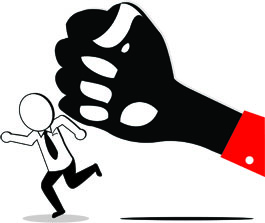FreemansPerspective.com January 22 2014
As I was finishing up my liberty entertainment article a few weeks ago, I checked lists that other people had made, just to see if I had forgotten something. As I did, I was dismayed to find that in most of these lists, pro-liberty really meant pro-military.
So I think it’s time to take a quick look at the myth that military power gives us liberty.
The Fantasy of the Foreign Oppressor
There is a plot that lies behind this “military power equals freedom” belief. It says that the enemy of liberty is a foreign invader. So, if the outsider is afraid to approach, we are free.
It implies that “local rule equals freedom.”
This is simply a lie. But it’s a lie that works very well in fiction.
Back in the real world, the hometown of an oppressor – whether it be near or far – makes him no better or worse.
Are we free because the people who rule us reside within local borders? Does that remain true even when it’s the “inside our lines” people who oppress us?
May only foreigners be oppressors?
Consider these recent cases: Continue reading


 The productive people of this world are being abused. We all know it and we all complain about it. And most of the things we complain about (taxes, stupid laws, politicians and bureaucrats doing ridiculous things) are backed by large, powerful systems. That is why I chose “systemic abuse” for this issue’s title.
The productive people of this world are being abused. We all know it and we all complain about it. And most of the things we complain about (taxes, stupid laws, politicians and bureaucrats doing ridiculous things) are backed by large, powerful systems. That is why I chose “systemic abuse” for this issue’s title. All governments – communist, capitalist, fascist, monarchy, theocracy, whatever – survive on the skim. They take money from productive people, by force or threat of force. However prettied-up or justified this fact may be, it remains the central fact of rulership.
All governments – communist, capitalist, fascist, monarchy, theocracy, whatever – survive on the skim. They take money from productive people, by force or threat of force. However prettied-up or justified this fact may be, it remains the central fact of rulership.